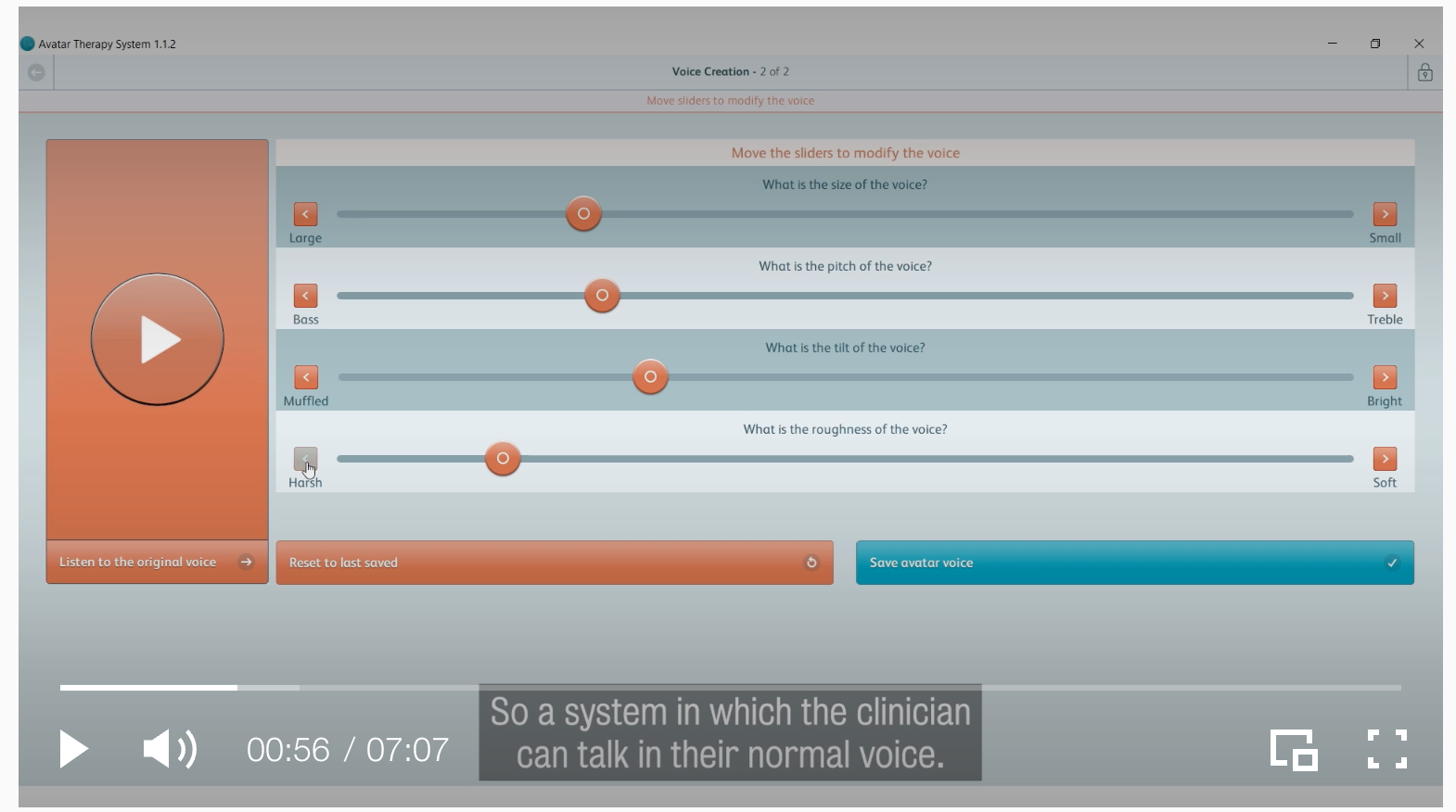Negotiating with hallucinations: Two controlled trials
Jenny Kleeman, "‘You tried to tell yourself I wasn’t real’: what happens when people with acute psychosis meet the voices in their heads?" The Guardian, 10/29/2024: "In avatar therapy, a clinician gives voice to their patients’ inner demons. For some of the participants in a new trial, the results have been astounding."
I learned about early trials of this idea about 15 years ago from Mark Huckvale, who developed the voice-morphing technology that allows a therapist to sound like (one of) the hallucinated speakers, through a dashboard that looks like this:
And Mark is one of the authors of the 2018 paper that the Guardian article leads with: Tom Craig et al., "AVATAR therapy for auditory verbal hallucinations in people with psychosis: a single-blind, randomised controlled trial". The Lancet January 2018.
Read the rest of this entry »
